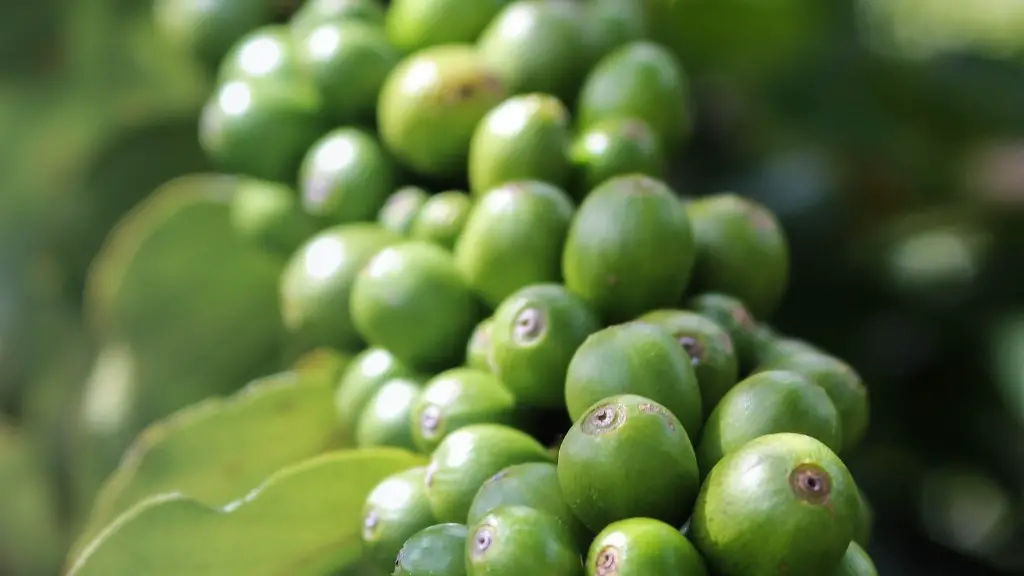Do we allow children to drink coffee?
This is a question that has been debated for many years. Supporters of coffee drinking in the pediatric population argue that the health benefits outweigh any potential risks. On the other hand, there are experts who caution against consumption in children, as it may have more of an impact on their developing bodies than it does on adults.
It is true that research has shown positives in drinking coffee. In moderation, caffeine consumption can have some health benefits such as improved alertness, better focus, and even reducing risk of certain types of cancers. A study has also indicated that moderate coffee consumption can have a positive effect on metabolism and the ability to incorporate exercise. Additionally, it is an antioxidant-rich beverage, containing important properties that can help protect the body’s cells from damage.
But for children, the effects of caffeine can be stronger. In fact, children’s bodies may process caffeine differently than adults with some studies showing that there may be harmful long-term effects on cardiovascular health and cognitive development. The American Academy of Pediatrics (AAP) and other organizations do not recommend that children consume caffeine for any reason.
Additionally, there is the potential for caffeine dependence or an increased desire for coffee, making it difficult to stop or even monitor their caffeine intake. Children may not realize that once they start, it can be difficult to stop, and that drinking coffee every day can lead to a tolerance and increase in dosage needed to achieve the desired effect.
It is also important to consider the effects of coffee on the developing brain. During adolescence, it has been suggested that coffee can cause more oxidative stress and more inflammation within the nervous system. This can lead to disruption in neurodevelopment processes and reduce the effectiveness of brain cell connections.
Given the potential risks associated with coffee consumption in children and the lack of research-supported benefits, it may be better to avoid it altogether. If a child is tired, it is best to seek healthier alternatives, such as getting more sleep or consuming fresh foods and water. Moreover, educating children about the real effects of drinking too much coffee can help ensure that they make the best decisions for their health.
Caffeine and Sleep
In addition to the potential negative health effects, caffeine consumption can also affect the amount and quality of sleep that a child gets. Research has shown that consuming caffeine, in any form, can make it harder for children to fall asleep and sleep for longer periods at night. This is due to the effects of caffeine on the nervous system and the ability of the body to relax. In extreme cases, caffeine consumption has been linked to disrupted sleeping patterns, including nightmares.
Since a child’s body cannot process caffeine as quickly as an adult’s, it is important to limit the consumption of coffee and other caffeinated beverages. It is also important to monitor intake and avoid drinking coffee within a few hours of bedtime to ensure that the child gets enough rest.
It is also important to consider the impact of caffeine on children’s bodies. Caffeine is a stimulant and can cause accelerated heart rate and increased blood pressure. In children, these effects can be even more pronounced, so it is important to ensure that children are consuming caffeine in moderation and also avoiding activities that can increase the risk of injury if combined with caffeine consumption.
Alternatives to Coffee
Though there are potential health benefits associated with coffee, for children, these benefits may be outweighed by the potential risks. For this reason, it is important to provide children with healthier alternatives to coffee. Water is a great option to keep kids hydrated and energized. Herbal and fruit teas can provide a boost of energy while reducing the risks associated with high caffeine amounts found in coffee.
Smoothies are also a great way to keep your child energized without the caffeine. Natural fruits and vegetables can provide vitamins, minerals and fiber without the added effects of caffeine. Adding nuts, such as almonds or walnuts, can also provide additional energy and healthy fats.
In addition to healthier alternatives, it’s important to talk to children about their caffeine consumption. It can be easy for children to overestimate their ability to process caffeine, or underestimate the impact that caffeine can have on their health. Educating children about how too much caffeine can affect their sleep and overall health can help them make healthier choices.
Safety and Regulation
Ultimately, parents should be aware of the potential risks of caffeine consumption in children and be sure to supervise their child’s intake. The Food and Drug Administration (FDA) does not regulate the amount of caffeine in beverages and products, making it up to parents to manage their child’s intake. As such, parents should keep track of how much caffeine their child is consuming and seek medical advice if they are concerned about potential health effects.
In addition, the World Health Organization (WHO) does not recommend consuming caffeine before the age of 18. Keeping this in mind, parents should not allow children to consume coffee or any other caffeinated beverages on a regular basis or in excessive amount.
It is important for parents to be aware of the potential risks associated with caffeine consumption in children, and to make sure that their children are consuming caffeine in moderation. While coffee may be beneficial in moderation, with the potential negative impacts on children’s bodies and minds, it is best to avoid it altogether.
Nutritional Value
It is important to consider the nutritional value of coffee when deciding whether or not to give it to a child. While coffee contains beneficial antioxidants, it also contains added sugar, calories and fat. Studies have shown that these additional ingredients may not be beneficial for a child’s health. Additionally, when coffee is mixed with milk it can contain more calories, fat and sugar than alone.
It is important to take into consideration the nutritional content in coffee and other caffeinated drinks, even if a child is not consuming it on a regular basis. Some experts suggest that if children do consume coffee, it should be in the form of cold brew or decaffeinated coffee, as these contain fewer calories, fat and sugar than regular coffee.
Soft drinks, energy drinks, and other caffeinated beverages can be even more detrimental to a child’s health due to added sweeteners and high-fructose corn syrup. This is why it is important for parents to monitor the type of caffeinated beverage their child is consuming, as well as their consumption.
Environmental Considerations
In addition to the health implications of coffee consumption, it is important to consider the environmental impact of its production. Coffee production is energy-intensive and can have a significant environmental impact. From water consumption to environmental degradation, the production of coffee can cause significant damage to the environment.
With the rising demand for coffee, it is important to consider more sustainable options such as organic and Fair Trade coffee. These are coffees that are certified to meet certain standards, including protecting the environment and providing fair wages to the farmers and workers involved in production. Choosing organic and Fair Trade coffee can help to ensure that the coffee consumed is ecologically and ethically responsible.
It is important to consider all the impacts of coffee when deciding whether or not to give it to a child. While it may have some potential health benefits, the risks associated with it may make it unwise to do so, or to at least limit its consumption. Additionally, educating children about the potential risks can help ensure that they make healthier choices and understand the consequences of drinking too much coffee.





